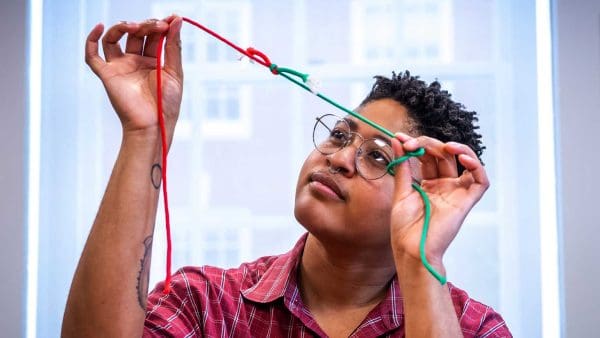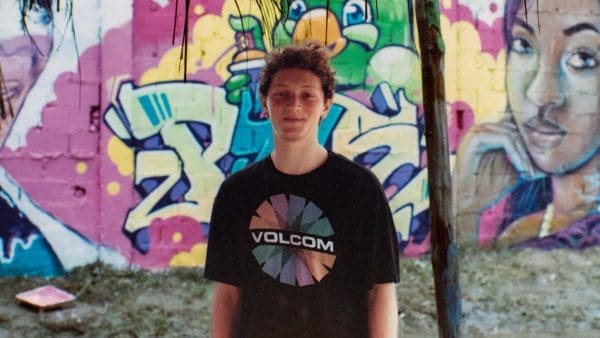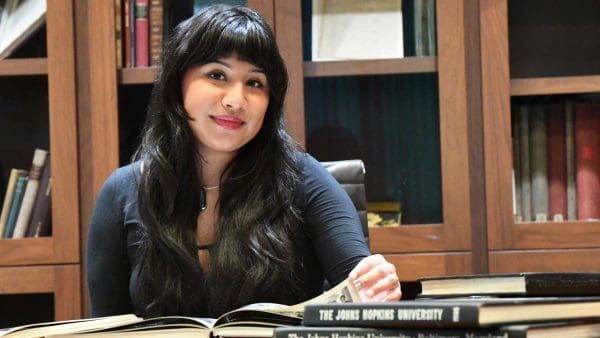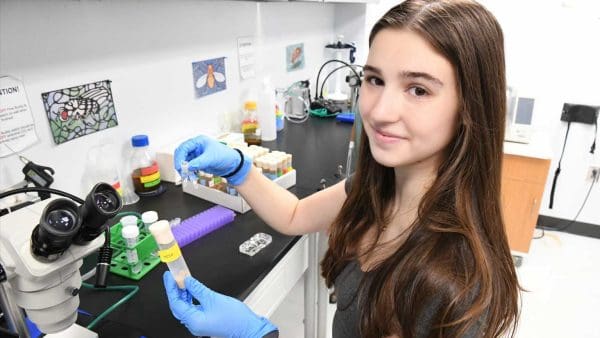What Lisa Smith ’13 has learned doing research on the mobile van of the Baltimore City Needle Exchange Program that won’t be found on the usual Krieger School syllabus: how to assist in cleaning and dressing an acute or chronic wound; the rhetoric of drug use that adopts terminology like cookers and filters, kicking, muscling, and skin popping; how nightclub dancers in Baltimore’s red-light district will camouflage wounds under fishnet stockings; and the frustrating and humbling realization that the fix inevitably comes first in the lives of people struggling with addiction.
But by her own reckoning, the most profound lesson Smith has absorbed is one that eludes many people: to accept injection drug users as humans with deep lives. “The spirit of these people really surprises me,” says Smith, a molecular and cell biology and history of science double major. “Yes, this population is homeless, and yes, they’re injecting drugs, but it doesn’t mean that they’re less human. They still have feelings. They still have friends. They have rights.”
Smith’s research on the chronic and acute wounds and abscesses that are often a byproduct of long-term IV drug use is part of a larger study under the direction of Kristine E. Johnson, an assistant professor in the Division of Infectious Diseases at Johns Hopkins Bayview Medical Center.
Working with Johnson under the auspices of her Woodrow Wilson Undergraduate Fellowship, Smith conducts surveys that provide insight into the subjects’ drug use practices, the people around them, their experience with wounds or abscesses, and their access to health care. She also assists Johnson in providing wound care on the needle exchange vans. The results of this research will suggest the type of intervention practices that are most effective.
Her own experience with a tropical skin infection acquired in Costa Rica during a study-abroad trip piqued her interest in wound healing. “Seeing the healing process in myself really opened my mind to studying wounds further,” says Smith. Still, she adds, “I got way more than I bargained for.”
Clients may arrive high, suffering from withdrawal, agitated, or eager to exchange their needles and leave. Their situations and stories—of homelessness, of battling addiction while pregnant, of generations of drug abuse within families—are harrowing. The amount of pathology present in wounds can be profound, and exam rooms in the health department’s vans do not leave much room to clean, bandage, and sometimes lance wounds or abscesses.
“Lisa was unflappable from the beginning,” says Johnson, who points to Smith’s ability to engage with clients on very sensitive topics in a nonjudgmental way. “There’s a certain amount of compassion that can be taught, and certain elements that can’t be taught—only nurtured. At her core, Lisa has a sensitivity to what it means to be underserved and disenfranchised.”




